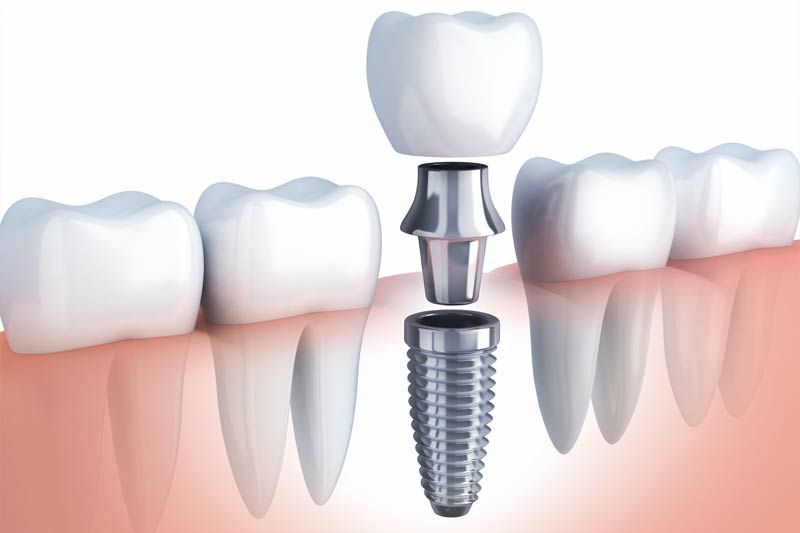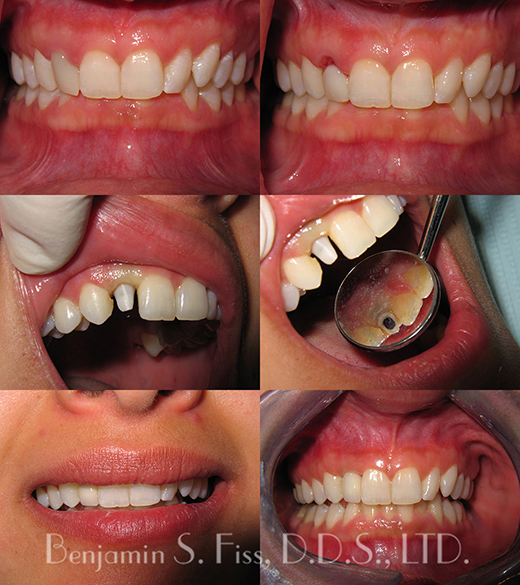Mono Implants Galena OH Types of Dental Implants
Mono Implants Galena OH Types of Dental Implants
Blog Article
Dentist Office Johnstown OH The Best Dental Implant Services
Dental implants have emerged as a preferred alternative for individuals looking for a long-term solution to tooth loss. One essential aspect of understanding dental implants involves their effect on adjacent teeth. This is particularly essential for making certain the health and longevity of the complete dental structure.
When a dental implant is positioned, it mimics the function of a natural tooth root. By doing so, it helps keep the integrity of the encircling bone structure. Natural teeth depend on a balanced, interconnected system for support, and dental implants can contribute positively to that dynamic. The stability offered by the implant allows for better distribution of bite forces, which can prevent undue stress on adjacent teeth.
Pediatric Dentist Condit OH Dental Implant Services: Find the Best in Your Area
In cases the place a tooth is missing, the neighboring teeth may shift into the vacant space. This shifting can result in misalignment and various other issues. By placing a dental implant, the chance of this shifting is reduced, because the implant acts as a placeholder that preserves the natural alignment of surrounding teeth. This preventive effect is essential for long-term oral health and performance.
Another essential consideration is bone loss. When a tooth is lost, the jawbone within the space can start to deteriorate because of a lack of stimulation. Dental implants assist prevent this bone loss by offering the necessary stimulation to the jawbone, much like a natural tooth root would. This preservation of bone not solely helps the implant itself but additionally contributes to the stability of adjacent teeth.
The type of material used in dental implants, typically titanium, has a unique property of osseointegration, that means it fuses with the bone over time. This integration provides a sturdy basis for the synthetic tooth whereas making certain that the implant doesn’t negatively affect surrounding structures. As the implant integrates, it creates an surroundings that contributes positively to the health of the adjacent teeth.

Regular dental check-ups play an essential role in monitoring the impact of dental implants on adjacent teeth. Professional assessments may help establish any points which will come up, ensuring prompt remedy and sustaining the health of the complete dental arch. These evaluations might embody X-rays to check for bone density and the general condition of the implant and surrounding teeth.
Pediatric Dentist Granville OH Dental Implant Benefits
Oral hygiene practices are very important for people with dental implants. Proper brushing and flossing habits not only contribute to the longevity of the implant but additionally make positive that adjacent teeth stay healthy. Food particles and plaque that accumulate across the implant could cause problems, including peri-implantitis, an inflammatory condition that may affect surrounding teeth and tissues.
The positioning of dental implants can affect the health of adjacent teeth. If an implant is placed at an angle or not properly aligned, it may lead to increased strain on neighboring teeth. This misalignment could trigger wear and tear on adjacent enamel, potentially resulting in cavities or different dental issues. Therefore, the talent and experience of the dentist performing the implant procedure are paramount in attaining a profitable end result.
In some cases, extra procedures may be essential to arrange the surrounding space for an implant. Bone grafting or sinus lifts might help create a better environment for the implant. While these procedures are aimed at enhancing the site for the implant, additionally they serve to guard the health of adjacent teeth by making a extra stable foundation.
Dental Care Centerburg OH Dental Implant Surgery: Procedure, Recovery, and What to Expect

As dental technology evolves, advancements in implant techniques result in higher outcomes. Improved imaging strategies and computer-aided design enable for extra exact placements that minimize risk to adjacent teeth. With these advancements, the chance of problems that would come up from improperly positioned implants diminishes considerably.
Post-operative care additionally performs a crucial function in ensuring that adjacent teeth remain unaffected. Patients should adhere to the dentist's directions concerning food regimen, oral hygiene, and follow-up visits. Neglecting these guidelines may lead to complications that influence not solely the implant but additionally the neighboring teeth.
Dental Clinic Centerburg OH Single-Tooth Implants: Everything You Need to Know
In conclusion, dental implants, when placed appropriately and cared for correctly, have the potential to boost the health of adjacent teeth rather than detract from it. They keep alignment, stimulate bone development, and supply a safe basis that helps the whole dental structure. Understanding how dental implants have an result on adjacent teeth emphasizes their importance as a long-term tooth replacement answer. With continuous developments in technology and methods, the integration of dental implants into restorative dentistry is turning into increasingly successful, guaranteeing wholesome and functional smiles for years to come back.

- Dental implants prevent adjacent teeth from shifting into the hole created by a missing tooth, serving to to maintain up correct alignment within the mouth.
- The rebuilding of the jawbone through an implant can stimulate surrounding teeth and keep them healthy by providing essential bone density which may otherwise diminish.
- Adjacent teeth benefit from the stabilization that dental implants present, lowering the danger of wear and tear and tear from misalignment throughout chewing.
- Implants can protect adjacent teeth by acting as a framework, which might distribute chew forces evenly across the dental arch as a substitute of inserting undue stress on neighboring teeth.
- When positioned accurately, dental implants decrease the risk of gum disease which may affect adjacent teeth by maintaining a clear and healthy gum line.
- The presence of an implant can facilitate an improved oral hygiene routine, as it eliminates the necessity for bridgework that could entice food particles around adjacent teeth.
- Regular dental check-ups can reveal how properly the implant integrates with surrounding constructions, making certain ongoing health for adjacent teeth.
- Implants can prevent the natural means of bone resorption that happens after tooth loss, positively impacting the soundness and longevity of adjacent teeth.
- The use of dental implants might cut back the need for more invasive procedures sooner or later, providing a long-term answer that maintains the structure of the complete dental arch.
- Successful integration of an implant into the dental arch enhances overall oral function, often leading to improved confidence and oral health for adjacent teeth.undefinedHow do dental implants affect adjacent teeth?
What influence do dental implants have on the alignment of adjacent teeth?
Dental implants generally prevent the shifting of adjacent teeth, helping to maintain correct alignment. This stability can scale back the risk of growing chunk issues over time.
Can dental implants you can try these out cause harm to nearby teeth?
When placed appropriately by a certified skilled, dental implants shouldn't damage adjacent teeth - Dentists Sunbury OH. However, improper placement or insufficient planning could result in issues
Dental Clinic Centerburg OH Full Mouth Dental Implants: An In-Depth Overview
Do dental implants require any special care concerning adjacent teeth?
Maintaining good oral hygiene is essential. Surrounding teeth must be brushed and flossed regularly, and routine dental check-ups will assist be positive that both the implants and adjacent teeth remain wholesome.

Will dental implants impression the health of my surrounding teeth?
Dental implants can improve the health of surrounding teeth by distributing chew forces evenly, reducing put on and tear. Additionally, they can prevent bone loss in the jaw, which might affect adjacent teeth.
Dentist Office Pataskala OH The Benefits of Dental Implants: Why Choose Them?
Are there any long-term results of dental implants on close by more helpful hints teeth?
Long-term, dental implants may help protect the health of adjacent teeth by stopping shifting and potential gum issues, ultimately contributing to higher oral health overall. - Mono Implants Hartford OH
Can gum problems arise round adjacent teeth after getting implants?
If proper dental care is neglected, gum points may develop round both the implants and adjacent teeth. Following post-operative care instructions is essential to attenuate these risks.
Mono Dental Implants Johnstown OH The Benefits of Dental Implants: Why Choose Them?
How do dental implants look at this now compare to bridges in phrases of adjacent teeth?
Dental implants are typically useful as they don’t require alteration of adjacent teeth, unlike bridges, which necessitate reshaping of close by teeth for support. (Orthodontics Centerburg OH)
Can I nonetheless get cavities in adjacent teeth if I have dental implants?
Yes, adjacent teeth can still develop cavities if not properly cared for. Dental implants themselves cannot get cavities, but they require vigilant hygiene practices to guard surrounding natural teeth.
What is the success rate of dental implants in relation to surrounding teeth?
The success rate of dental implants is excessive, however it largely depends on the quality of the procedure and ongoing care. Well-maintained implants typically lead to better outcomes for adjacent teeth as well.